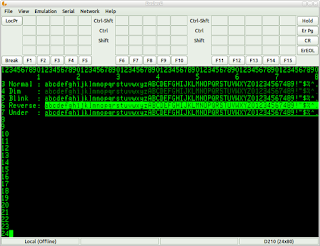Lessons Learnt: Porting an application from Go to Ada
Introduction This document describes some of my thoughts following the successful transition of a desktop terminal emulator program from Go and Gtk 2 to Ada and Gtk 3. The rewrite took place over a period of four months beginning in November 2021. Caveat I do not claim to be an expert in anything that follows. These days (2022) programming is a hobby for me and all the work described here was undertaken as a 'spare time' project. This is an 'opinion piece' - I am not going to back up every statement with references! Application Description My DASHER terminal emulators provide free, open source and modern emulations of the most commonly used types of terminal (D200 and D210) that were connected to Data General minicomputers of the 1970s through to the end of the century. Having both serial and telnet support, the emulators can be connected both to legacy hardware and modern emulations of that hardware. The first in this series of terminal emulators ...

